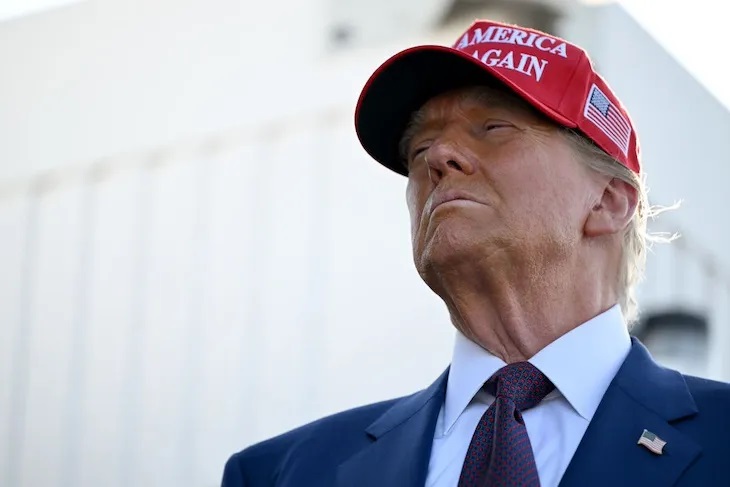It turns out it wasn’t just China after all. Mexico, and indeed Canada, are just as much in the firing line. President-elect Trump announced last night that he will impose an immediate 25 percent tariff on imports from both of the US’s two largest land neighbors, threatening huge disruption to their economies. Trump may think he is being clever by weaponizing access to the American market, and in the short-term he may even by right. The trouble is, he is going to break the global trading system — and it will be very hard to put back together afterwards.
This is a recipe for constant market chaos
It is no surprise that the Canadian and Mexican markets are falling sharply today. Tariffs of 25 percent on everything they sell into the US is going to wreak havoc on their industrial base. Canada exports $439 billion of goods to the US every year, and Mexico $452 billion. Ever since the signing of the North American Free Trade Agreement in the 1990s both economies have become deeply integrated into the US market. Tariffs on this scale, if they actually happen, will plunge both Canada and Mexico into a recession.
Trump says he will impose the levies in retaliation for not cracking down on illegal immigration and drug trafficking. In fairness, he may have a point. Neither country has done enough to secure their long land borders with the US. The tariffs will at least focus the minds of political leaders in both Ottawa and Mexico City. If they don’t get serious about clamping down on both migration and drugs they will pay the price. But if it gets results, as it probably will, the Trump administration will be emboldened to play the same card again and again.
There is a catch, however. This is a recipe for constant market chaos. Canada and Mexico may have annoyed Trump this week, but next week it could be Germany, South Korea or the UK. Indeed, given how annoying the Trump team, and especially Elon Musk, seem to find the Starmer government, it would hardly be a huge surprise if we suddenly faced 25 percent tariffs on our largest export market because they didn’t like the police investigating a hate crime incident, or a tax rise, or a piece of digital regulation, or indeed almost anything.
Whenever the White House wants leverage, it will impose tariffs. In that world, however, companies won’t know where they stand from one day to the next. It will be impossible to invest, to build supply chains, or to put money into marketing campaigns, or anything else that enables trade to flow around the world. The result? The global trading system will break very quickly. Once that happens, it will be impossible to put it back together again — and that will be very dangerous for every major economy.

























